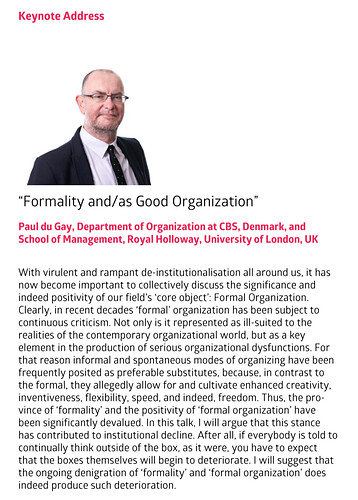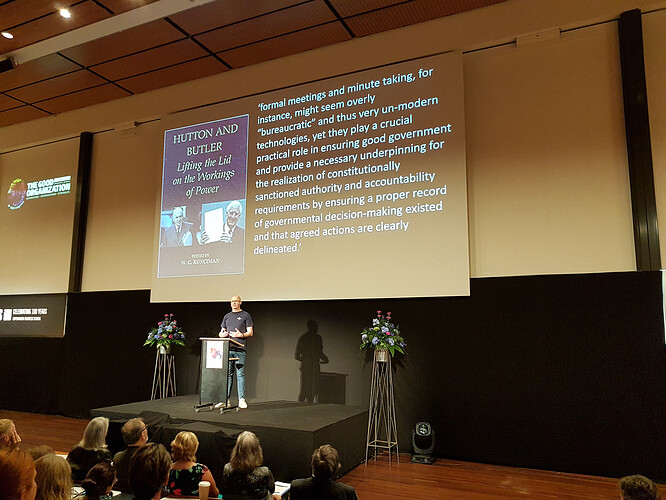This morning, I attended an inspiring keynote lecture by Paul du Gay. The main theme of the conference is “Good organization” and he spoke about “Formality and/as Good Orgabnization”.Here is the abstract:
I am mentioning this here because he made some interesting observation about how disastrous government decisions (like those leading into or escalating a war) can be linked to an informal style of government where formal procedures are dismissed (often giving the urgency or exceptionality of the situation as a reason). He illustrated this with various examples such as the informal style of government of the Blair government in the context of the war in Iraq. An example of such informality are high level meetings without any minutes or meetings where written reports where not distributed to participants, allowing Blair to provide an uncontested interpretation of these reports. He cites a report in which an official admits that out of 17 meetings per day at Downing Street 10, only three where minuted.
To counter the argument that such informality is warranted in situations of urgency in order to allow for flexible and quick reaction, he mentions the procedures that nurses follow in the emergency room before delivering an urgent blood transfusion to a patient: nurse 1 reads from a document the name and blood group of the patient and nurse 2 reads the same information from the blood package. Then they swap roles and nurse 2 reads the information from the document and nurse 1 reads it from the blood package. All this to ensure that they are delivering the correct blood transfusion to the patient. In other words, the formal procedure is a way of keeping a cool head in this situation of crisis and urgency and preventing wrong or irrational decisions
Unfortunately, some administrations have dodged this kind formal procedure in their decision making in crisis situations, producing catastrophic decisions such as Kennedy’s escalation of the Vietnam war or Blair’s participation in the invasion of Iraq.

